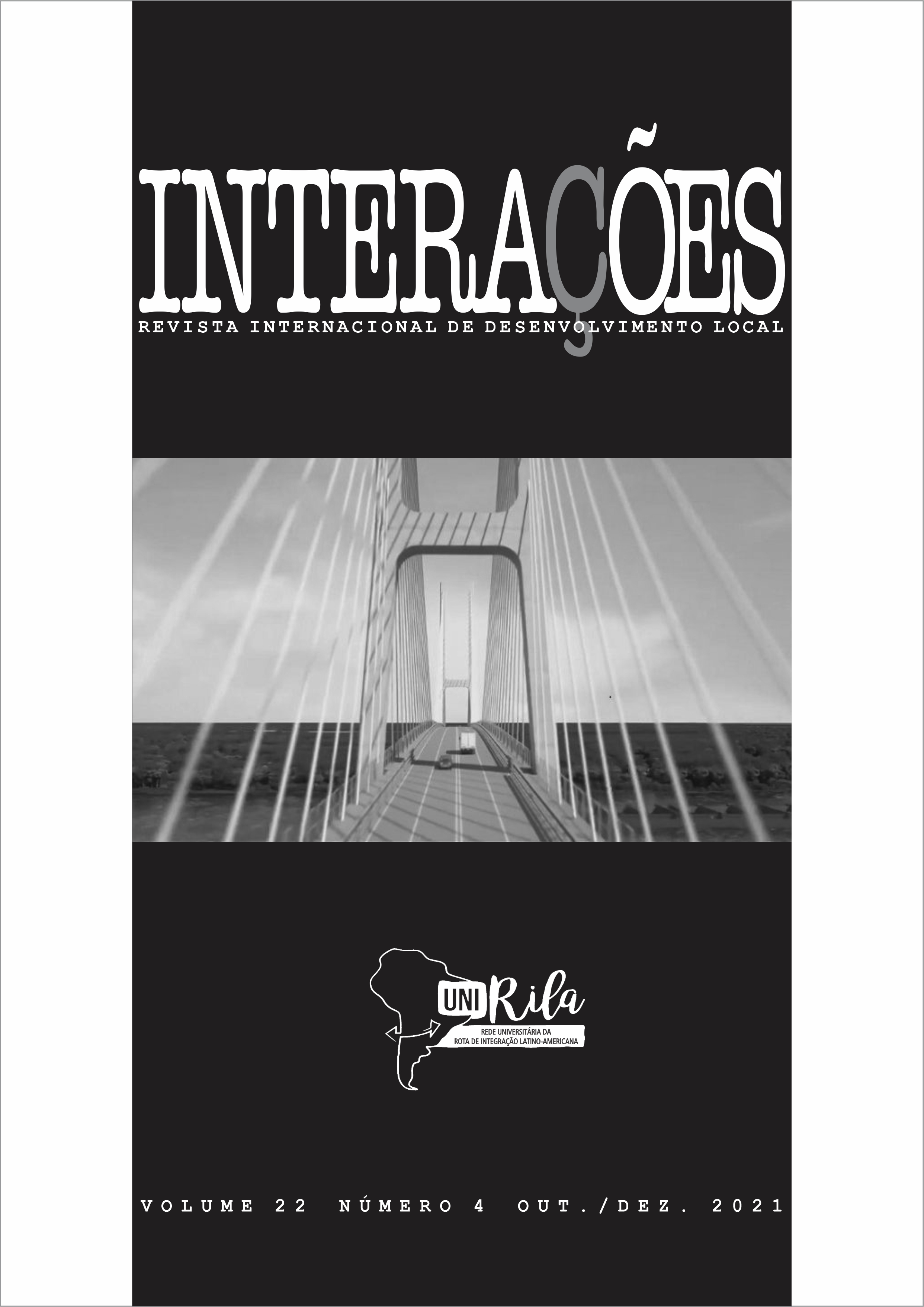Analytical Studies about the Bioceanic Corridor
Keywords:
Biocenic road corridor. Strengths and weaknesses. Four territories.Abstract
The construction of the Bio-Oceanic Road Corridor is an extremely complex task, as it involves many difficulties and multiple actions that need to be implemented in order to integrate Mato Grosso do Sul, in Brazil, with the Northern Chilean ports, crossing huge land spaces in Paraguay and Argentina. Furthermore, the four countries have no intention to create merely a road or a trade corridor. The main objective is to transform the corridor into an economic and social development platform, capable of attracting additional investments, encouraging firm partnerships as well as strengthening territorial integration. By such a collective effort, the countries envisage bringing benefits not only to the private sector but also to local communities. In this context, it is compelling to understand the strengthens and weaknesses of the corridor, in order to guide policymakers on how to implement future actions, with a view to fully exploring all the advantages deriving from physical integration as well as overcoming foreseeable obstacles. This article will enable readers to identify the characteristics of each one of the regions covered by the corridor and, thereby, understand its advantages and disadvantages, but also to learn how the corridor will change their lives. Bio-Oceanic Road Corridor will deepen regional integration and provide trade operators with better and less costly access to Asian markets, to the US West Coast as well as to Peru, Ecuador, and Colombia. Thanks to a modern physical connection, exporters from Brazil, Paraguay, and Argentina will be able to send abroad their goods in less time and lower costs, increasing competitiveness and adding value to the exported goods. In the same vein, raw materials and other inputs will be imported at lower costs, encouraging the development of industrial clusters as well as breaking up geographical isolations as well as providing an alternative to a logistics too dependent on the Atlantic Ocean.
References
APEX BRASIL. Mato Grosso do Sul: perfil e oportunidades de exportações e investimentos – 2020. Brasília-DF: APEX-BRASIL, 2020.
BANCO MUNDIAL. Logística: análisis y opciones para resolver sus desafíos estratégicos. report n. 54342-AR. Argentina: Banco Mundial, 2010.
CASTRO, João Carlos Parkinson. Corredor Rodoviário Bioceânico: novas oportunidades. Dourados, MS, 11 Mar. 2020. [Power Point]. Available at: https://onedrive.live.com/view.aspx?resid=FFA5652B66102A82!771&ithint=file%2cpptx&authkey=!AH7tlaA13p6-kpQ. Access on: 16 June 2021.
CONSEJO ECONÔMICO SOCIAL. Plan de Logística de la Provincia de Salta. Salta/Argentina: Subsecretaría de Planificación Territorial de la Inversión Pública; Gobierno de la Provincia de Salta; Consejo Económico Social; Corporación Andina de Fomento, Mar. 2016.
ORGANISATION FOR ECONOMIC CO-OPERATION AND DEVELOPMENT [OCDE]. Estudios económicos de la OCDE. Chile: OCDE, Feb., 2018. Available at: www.ocde.org./eco/surveys/economic-survey-chile.htm. Access on: 16 June 2021.
UNITED NATIONS CONFERENCE ON TRADE AND DEVELOPMENT (2004-2018). Brazil Liner Shipping Connectivity Index. CEIC, 2018 . Available in: https://www.ceicdata.com/en/indicator/brazil/liner-shipping-connectivity-index. Access on: 15 Feb. 2021.
Downloads
Published
How to Cite
Issue
Section
License
Direitos Autorais para artigos publicados nesta revista são do autor, com direitos de primeira publicação para a revista. Em virtude de aparecerem nesta revista de acesso público, os artigos são de uso gratuito, com atribuições próprias, em aplicações educacionais e não-comerciais.


